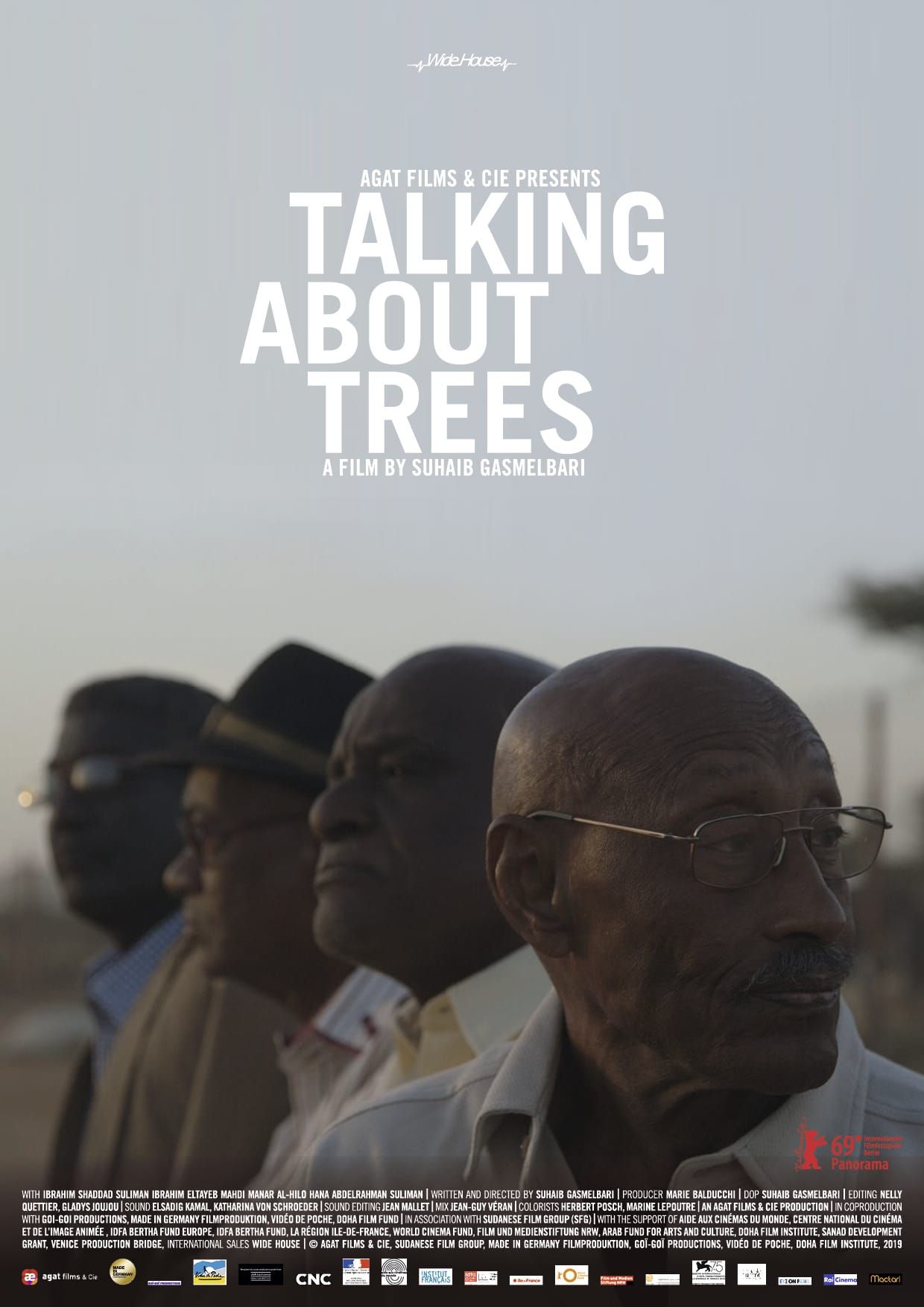Talking About Trees
Synopsis
Most Americans are in the dark when it comes to the cultural and political histories of Sudan. Indeed, the African country’s cinematic output — especially that which was produced and theatrically released both before and during the tumultuous Omar al-Bashir presidency (1989-2019) — is virtually unknown to stateside audiences. It is fitting, therefore, that Sudanese documentarian Suhaib Gasmelbari’s Talking About Trees begins in literal darkness, with a group of aging filmmakers making a phone call to the local electricity company and hauling out old lighting equipment to bring illumination to the opening scene. The men at the heart of this stirring film — Ibrahim Shaddad, Suliman Ibrahim, Eltayeb Mahdi, Manar Al-Hilo — are well-known in their homeland, where they helped to usher in a cinematic renaissance beginning in the 1960s and 1970s. But they have also received recognition throughout the Middle East, picking up awards at the Cairo Film Festival, the Damascus Film Festival, and other major events while giving regional audiences a rare glimpse into the important role that motion pictures play in a society that is torn between secular and religious factions (including those that have suppressed artistic expression). As the core members of the Sudanese Film Group, this unconventional quartet — full of life and brimming with energy but discernably worn down by the many obstacles placed before them by their government’s “morality police” — set out to do the improbable if not impossible. Specifically, they seek to reopen shuttered cinemas to the public, in hopes of instilling a renewed love for the collective experience of moviegoing that has all but disappeared following a series of civil wars and military dictatorships. The simple beauty of Talking About Trees resides in its attention to the relational dynamics of these filmmakers, who are mutually supportive of one another and tenderly commiserate about the need to talk about trivial matters (i.e., “trees”) rather than political subjects if they hope to continue working in a practically nonexistent industry. But they also share a passion for cinema that is infectious. Indeed, to intimately witness these good-natured men laughing about the bureaucratic hoops and national security questionnaires that stand between their dream of reopening rundown movie theaters and the actuality of such a cultural endeavor ever occurring is to imagine oneself being part of a community that understands how valuable something as “frivolous” as a silent Chaplin comedy or a contemporary action film can be at a time of national unrest. Whether they are acting out the famous final scene of Billy Wilder’s 1950 classic Sunset Blvd. or leading a camel into an open-air movie theater where Quentin Tarantino’s Django Unchained will be screened, these four legends of Sudanese cinema show us — with self-deprecating humor and unflinching honesty — how their chosen medium has made it possible for them and their countrymen to endure rights violations and authoritarian regimes. Thankfully, like the aging heroine in Wilder’s similarly reflexive tribute to an earlier era of moviemaking, Shaddad, Ibrahim, Mahdi, and Al-Hilo are now ready for, and finally getting, their “close-up.”
– David Scott Diffrient

Filmmakers
Suhaib Gasmelbari
Sudan
2019
97 minutes
English, Arabic and Russian with English subtitles